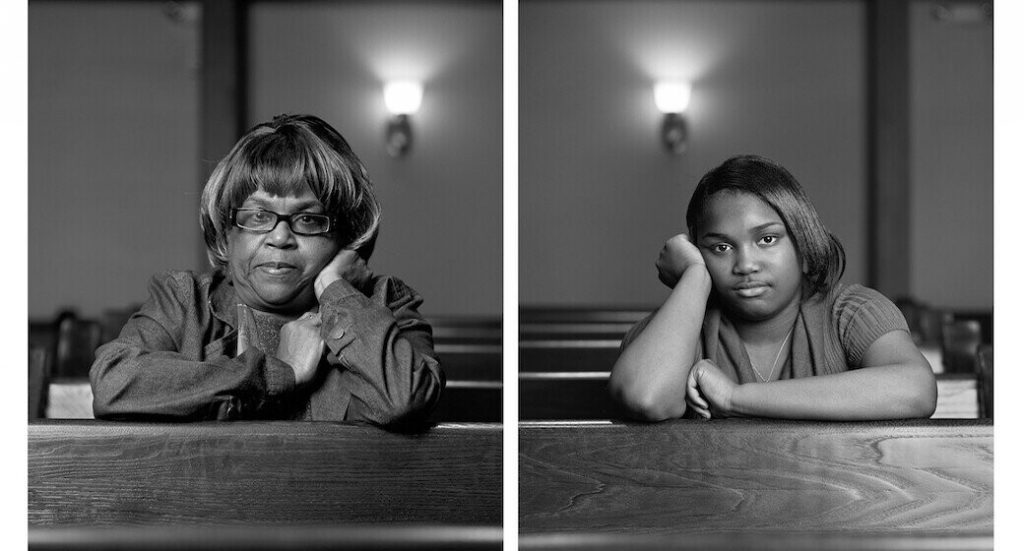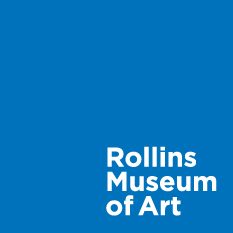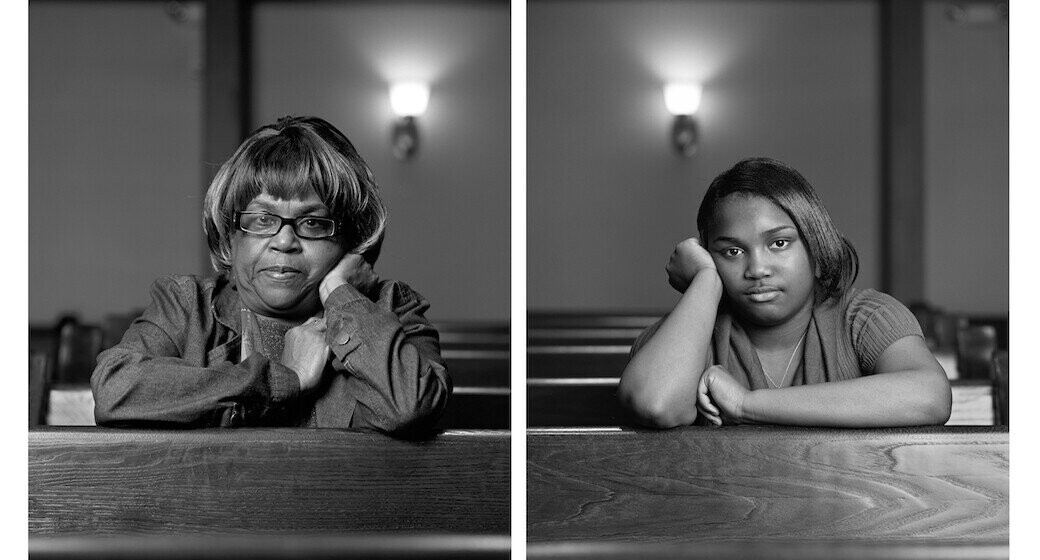
Dawoud Bey
(American, b. 1953), Janice Kemp and Triniti Williams, 2012, Archival pigment prints mounted on dibond, 40 x 64 in (40 x 32 in individually), Museum purchase from the Kenneth Curry Acquisition Fund, 2015.9., Image courtesy of the artist and Rena Bransten Gallery
A dimly lit, quiet devotional space holds two serious, still figures. Though intimately cropped with an uninterrupted gaze towards the viewer, the two pews in the foreground and their shared pose— one arm across the chest and head resting in hand—creates a slight distance from the viewer. The mirrored composition, subtle and nuanced, is a union of opposites; separate and unified, older and younger, knowing and inexperienced, present and withdrawn, accessible and unreachable, individual and communal, time passing and time standing still.
This emotional photograph, a part of the series the Birmingham Project by Dawoud Bey, mourns the tragic losses and grave injuries during the Sixteenth Street Baptist Church bombing and ensuing civil unrest in Birmingham, Alabama on September 15, 1963. Addie Mae Collins (14), Denise McNair (11), Carole Robertson (14), Cynthia Wesley (14), Virgil Ware (13), and Johnny Robinson (16), young African American girls and boys, lost their lives that day due to acts of racial violence. To recognize these victims on the 50th anniversary of the tragedy, Bey took a series of photographs in Birmingham of residents that symbolized the ages of the adolescents lost that day and the ages they would have been if they lived. Here, he juxtaposes the portraits of Janice Kemp and Triniti Williams sitting in pews of the Bethel Baptist Church, selected for its integral part in the Civil Rights Movement. Their intimate portrayals in a sacred space unveil layers of history and intergenerational trauma, and beckon to the viewer to reflect on history and the present.
On September 16, 1963, a day after the horrific event, President John F. Kennedy stated in response to the violence:
“If these cruel and tragic events can only awaken that city and state – if they can only awaken this entire nation to a realization of the folly of racial injustice and hatred and violence, then it is not too late for all concerned to unite in steps toward peaceful progress before more lives are lost.”
Now, 2020, over five decades later, the United States still faces senseless violence against black people and more innocent lives have been lost due to institutional racism and hate. As I experience this work by Dawoud Bey, I am overwhelmed with grief and a sincere longing for true progress.
Elizabeth Coulter
Former Associate Curator of Education
To read more on this work by Dawoud Bey, visit our Collection page.

